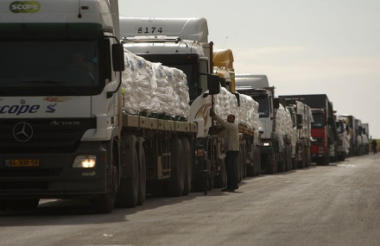Legislation has passed through the House of Commons that could prevent international charities’ bank accounts being frozen.
Currently, mainstream banks generally treat NGOs as “medium-risk” of money laundering because some of them operate in in high-risk environments such as Syria or Palestine.
This has led to the majority of NGOs reporting some kind of problem accessing mainstream banking channels due to “de-risking” practices, which is when banks slow down transactions, freeze or close accounts which they think could be at risk of breaches in regulation, particularly around money laundering and counter-terrorism.
Experts say there is currently a lack of clarity about whether humanitarian activity is prohibited by sanctions and has contributed to bank de-risking.
The Sanctions and Anti-Money Laundering Bill, passed on Tuesday, could prevent this as it includes plans to create general licences for humanitarian, peacebuilding, development and reconstruction activities for sanctioned countries, such as Syria.
The bill was introduced in the House of Lords, which now has an opportunity to consider the amendments made in the Commons.
'A crucial step'
Rowan Popplewell, advocacy adviser at NGO umbrella body Bond, said in a blog on the organisation’s website that the Bill is “a crucial step in the right direction”.
She said: “While the bill marks an important step in the right direction, much of the hard work to create a new framework for exceptions and licenses still needs to be done through the production of guidance and secondary legislation in the coming months and years.
“In a letter to Bond, the government said that it intends to build exceptions and general licenses for humanitarian, peacebuilding, development and reconstruction activities in to sanctions regimes when they are created or amended, where the need for such provisions is anticipated.
“The government will continue to issue individual licenses for NGOs on a case-by-case basis to allow them to respond to situations as they arise.”
Andrew O’Brien, director of policy and engagement at the Charity Finance Group, described the bill’s passage as “a big win”.
He said: “The new sanctions regime will give the UK government much more flexibility to support humanitarian work, and will give charities more certainty.
“Banks also need certainty if we are going to keep financial corridors to places like Syria open. We will be scrutinising the secondary legislation and guidance carefully, but this is a move in the right direction.”
However, the bill’s regulations will only come into effect once the UK has exited the European Union and after the transition period has ended, estimated to be 2020 at the earliest.
Related articles










